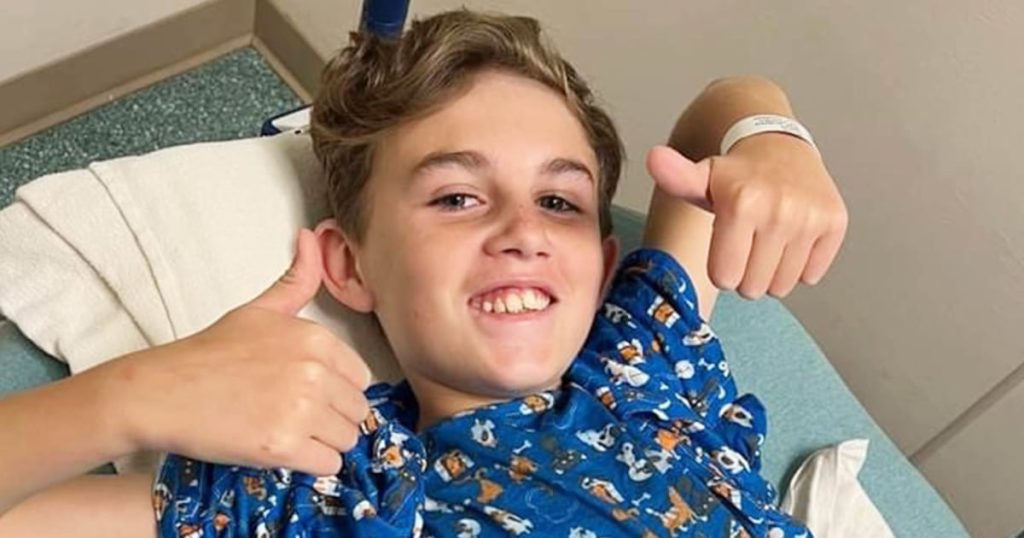During summer vacation in 2023, 11-year-old Landon Motter experienced hip pain that lingered into the school year. Concerned by the persistent pain and his limping, Landon’s parents sought out medical opinions after initial visits with his pediatrician did not provide a diagnosis. After numerous doctor visits and tests, Landon was ultimately diagnosed with Stage 4 non-Hodgkin lymphoma, leaving his family devastated and fearful for his future.
Despite the difficult news, Landon’s parents advocated for him and ensured they understood his treatment plan to support him through his chemotherapy. Landon underwent six cycles of chemotherapy, staying in the hospital for at least five days for each cycle. While the treatment brought challenges, such as hair loss, Landon exhibited few side effects and his energy levels remained impressive. By the end of his treatment, Landon showed no evidence of disease and was able to return to a normal, active childhood.
Landon’s specific type of non-Hodgkin lymphoma, anaplastic large cell lymphoma, is the third most common cancer found in children and adolescents. Children with this type of lymphoma tend to respond well to treatment, and the most important factor in prognosis is how the patient responds to therapy. Despite presenting in Stage 4, Landon was able to achieve remission thanks to the chemotherapy regimen he received and is now enjoying being a typical 12-year-old with no signs of the disease.
Symptoms of lymphomas can vary but may include fevers, unexplained weight loss, swollen lymph nodes, and difficulty breathing or swallowing. Parents are encouraged to be vigilant about changes in their child’s health and seek medical attention if they notice any concerning symptoms. Early detection and treatment can greatly impact the outcome for children with lymphomas, as was the case for Landon, who was able to return to school and normal activities after completing his treatment.
Landon’s family hopes that sharing his story will bring hope to other families facing pediatric cancer and inspire them to advocate for their children’s health. They stress the importance of listening to parental instincts and not ignoring any concerning symptoms, no matter how unexpected. By raising awareness and supporting other families going through similar challenges, they hope to make the journey a little less difficult for others.
As Landon continues to thrive post-treatment, his family remains grateful for his recovery and the support they received throughout their ordeal. Landon’s resilience and positive attitude have been instrumental in his journey, and his parents are thankful for the opportunity to see him move past his cancer diagnosis and embrace life as a teenager. Their experience serves as a reminder of the importance of early detection, advocating for one’s health, and staying hopeful through challenging times.


